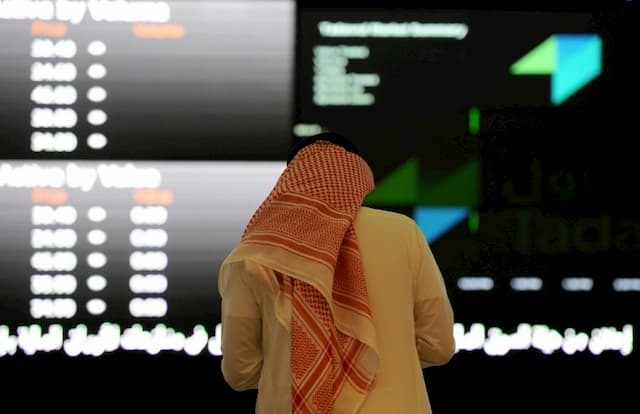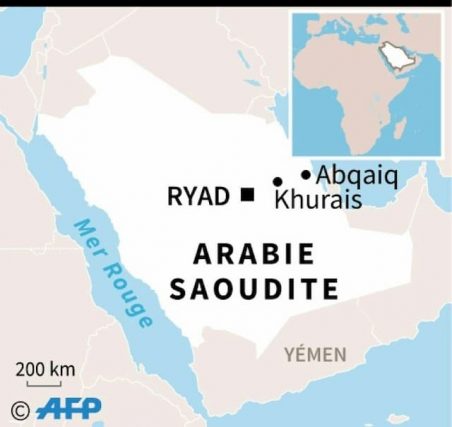Oil: Saudi Arabia Strives to Restore Production Temporarily Halved

After a drone attack Saturday (September 14th) on oil installations, Saudi Arabia is facing a reduction of half of its oil production.
Saudi Arabia is working on Sunday 15th September 2019 to restart its oil facilities damaged the day before by drone attacks, which resulted in a halving of production, strategic for the global economy.
Yemeni Houthi rebels, backed by Iran and who have been facing a military coalition led by Ryad for the past five years, have claimed responsibility for the attacks on the facilities of the public giant Aramco.
“Terrorist aggression”
There is no evidence that “the unprecedented attack on global energy supplies” has come from Yemen, US Secretary of State Mike Pompeo commented on Saturday (September 14th), accusing Iran of United would work to supply the markets.
Tehran on Sunday ruled the charges “foolish” and “incomprehensible,” by Foreign Ministry spokesman Abbas Mousavi, who hinted that they were intended to justify “future actions” against the government. Iran.
Iraq, for its part, denied any connection to the attack after the Wall Street Journal reported that US and Saudi officials were studying the possibility that missiles could have been fired at oil installations from Iraq.
Saudi Crown Prince Mohammed bin Salman, whose country is Iran’s great regional rival, assured that Ryad was “willing and able” to respond to this “terrorist aggression”.
But James Dorsey, a Middle East expert at Singapore’s S. Rajaratnam School of International Studies, has estimated that direct retaliation is unlikely.
“The Saudis do not want an open conflict with Iran (…) They would like others to fight for them, but the others are reluctant,” he said.

The nervousness of the markets
The Ryad Stock Exchange reacted to these attacks by falling by 3% at its opening, before taking back some of its losses.
Saturday’s explosions sparked fires at the Abqaiq plant, the largest for oil processing in the world, and the Khurais site, which is home to a huge oil field.
Saudi Interior Ministry spokesman General Mansour al-Turki told AFP that the attacks had not resulted in any casualties.
Saudi energy infrastructure had been affected several times by the Houthis, particularly in August and May.
But this strike is of another order: it caused a sharp reduction in production of 5.7 million barrels per day, or about 6% of global supply.
This could undermine investor confidence in Aramco, the oil giant preparing for its IPO.
The transaction has been delayed several times due to adverse market conditions.
As markets closely monitor Saudi Arabia’s reaction, Aramco CEO Amin Nasser said “jobs” are “underway” to restore production.
Prince Abdel Aziz ben Salmane recently appointed Minister of Energy, assured that part of the decline would be offset by large stocks.
Ryad, the world’s largest exporter of crude oil, has built five gigantic underground storage facilities across the country that can hold tens of millions of barrels of various refined petroleum products.

Vulnerable facilities
In a telephone conversation between US President Donald Trump and the Crown Prince, the White House condemned attacks on “vital infrastructure for the global economy”.
The UN envoy to Yemen, Martin Griffiths, said he was “extremely concerned” by the attacks, also condemned by Riyadh’s neighbors (the United Arab Emirates, Bahrain and Kuwait, and expressed his solidarity with Saudi Arabia “.
Ministers of the Organization of Islamic Cooperation (OIC), meeting in Jeddah, also condemned the attack. It was unclear whether Iran was present at the OIC meeting, originally convened to discuss the plan of Israeli Prime Minister Benjamin Netanyahu to annex parts of the occupied West Bank.
Ryad has spent billions of dollars on military equipment, but for the experts, recent attacks confirm the vulnerability of Saudi oil facilities and other Gulf countries.
“This means that the risk premium for oil must increase,” said Bill Farren-Price, director of the RS Energy Group, based in London.
Although the kingdom’s oil wells are scattered and difficult to access, its crude processing facilities are much more exposed.
In recent months, the Houthis have launched repeated cross-border missile and drone attacks on Saudi infrastructure in retaliation for the Ryad bombing campaign against areas they control in Yemen.
Enjoyed this? Get the week’s top France stories
One email every Sunday. Unsubscribe anytime.


